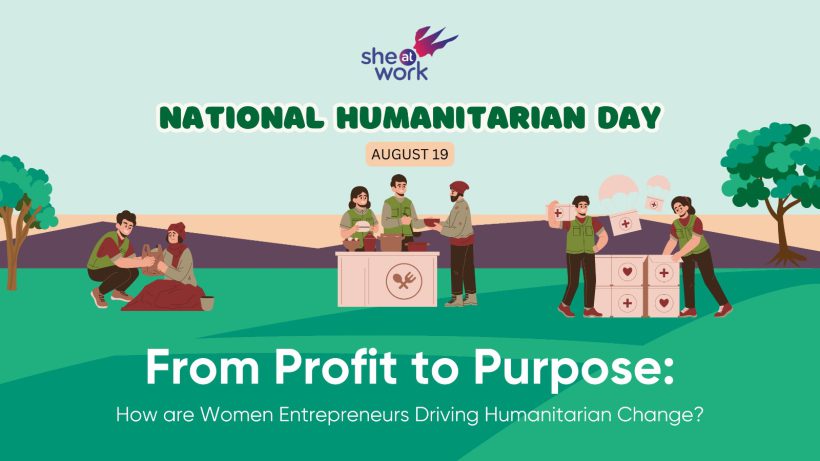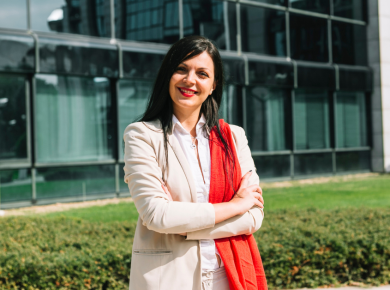#SheLeadsHumanity #SocialImpact #HumanitarianDay2025 #EmpowerCommunities
On August 19, the world comes together to observe National Humanitarian Day, honouring those who risk their lives to protect, uplift, and support communities in crisis. Each year, the day highlights a unifying theme that inspires collective action and solidarity across borders. In 2025, the theme – “Strengthening Global Solidarity and Empowering Local Communities” – calls for renewed commitment to both global cooperation and grassroots resilience.
While humanitarianism is often associated with aid workers on the frontlines, it also extends to entrepreneurs who create meaningful impact through innovation, leadership, and community-driven initiatives. And here, an important question arises: Are women entrepreneurs inherently more humanitarian? Research increasingly suggests the answer is ‘yes’.
Women Entrepreneurs as Humanitarian Leaders
Women entrepreneurs are frequently found at the intersection of business and social impact. Studies show that women-led businesses are more socially and environmentally oriented compared to their male counterparts. They don’t just chase profits; they balance economic goals with the well-being of people and the planet.
Focus on social goals: Women entrepreneurs often prioritize addressing societal challenges – whether it’s providing affordable healthcare, education access, or clean energy solutions.
Sustainability integration: They are more likely to embed sustainability into their business models, ensuring long-term value for both communities and ecosystems.
Community-centric vision: From micro-businesses to scalable enterprises, women consistently reinvest in their communities, creating jobs and fostering inclusion.
The Power of Social Entrepreneurship
The gender gap in traditional entrepreneurship may persist, but in social entrepreneurship, women stand strong. Many lead ventures that directly tackle poverty, health disparities, and environmental degradation. Their leadership fosters inclusive workplaces, diversity of thought, and solutions that resonate deeply with local needs.
Women-led businesses also frequently develop sustainable products and services that not only meet consumer demand but also contribute to long-term societal benefit. This makes them vital players in achieving both humanitarian goals and sustainable development.
Yet, systemic barriers remain. Women entrepreneurs continue to struggle with limited access to capital, mentorship, and global networks. These challenges prevent many from scaling their impact.
A Call for Global Solidarity
On this National Humanitarian Day, the spotlight should shine on women entrepreneurs who embody the spirit of humanitarianism – bridging innovation with empathy, business with social good. By empowering women with the tools, resources, and opportunities they need, we can build stronger, more resilient communities and a more humane global economy.
Humanitarianism, after all, is not only about responding to crises – it’s about creating systems of hope, inclusion, and dignity. Women entrepreneurs are proving that business can, and should, lead the way.










